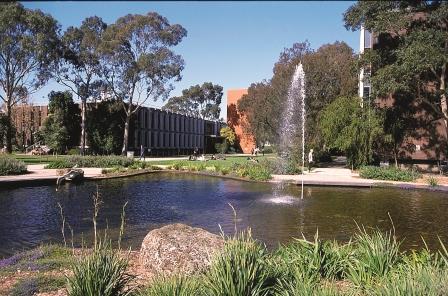Monash becomes WHO Collaborating Centre for Bioethics
Monash University’s Centre for Human Bioethics will play a key role in how the world responds to infectious diseases—including public health emergencies of international concern such as the current Ebola outbreak in West Africa.

Officially designated as a World Health Organization (WHO) Collaborating Centre for Bioethics, the Centre will support WHO in awareness-raising and capacity-building activities in ethics and health, provide technical assistance to Member states, and collaborate with WHO on ethical and policy issues associated with infectious disease control and biomedical research.
Bioethics has a significant role to play in ensuring that public health policy promotes justice and human rights. The WHO Collaborating Centres for Bioethics are key institutions with relevant expertise distributed throughout the world. They represent a valuable resource as an extended and integral arm of WHO’s capacity to implement its ethics mandate.
Monash University Vice-Provost (Research), Professor Pauline Nestor said the designation was an honour for Monash University and highlights its position at the forefront of bioethics and public health ethics internationally.
“Bioethics has a significant role to play in ensuring that public health policy is just and equitable,” Professor Nestor said. “Monash is currently the only WHO Bioethics Collaborating Centre in Australia and its status as a WHO Collaborating Centre will ensure that our research and talent play a formative role on some of the most important ethical issues related to global public health practice and policy.”
Director of the new centre, Professor Michael Selgelid said the designation demonstrates that the Centre for Human Bioethics is showing international leadership in the area of bioethics.
“WHO plays a paramount role in global public health practice and policy. As a collaborating centre we’ll be working with the WHO on some of the most important ethical issues surrounding global public health,” Professor Selgelid said. “Our work as a collaborating centre will both directly and indirectly influence global public health practice and policy—and thus have real impact.”
The Centre for Human Bioethics was established at Monash in 1980 as Australia’s first research centre devoted to bioethics, and it is widely recognised as one of the world’s leading Centres of its kind.
As well as collaborating with WHO the Centre will be part of a Global Network of WHO Collaborating Centres for Bioethics with partners at University of Toronto, Columbia University, University of Miami, University of Zurich and National University of Singapore.
Monash University Master of Bioethics
The Master of Bioethics is offered through the Monash Faculty of Arts. The course is particularly well suited for health care professionals and scientists who face complex ethical issues in their working lives. It is also valuable for those involved in the development of public policy and law regarding these issues, as well as for anyone who simply wishes to explore issues of public concern in greater depth. The course provides a structured program of units in ethical theory, applied ethics, healthcare ethics, research ethics, and related policy issues. It is designed in ways to suit students with little or no prior educational background in ethics or philosophy, but the course is also suitable for philosophy graduates with an interest in further study of bioethics. Teaching in the course is designed to improve students’ analytical skills, encourage them to think critically about the ethical issues considered, and to develop independent and well-informed views about the ethical and philosophical questions addressed in the course.
The Master of Bioethics includes a capstone unit, APG5044 Professional internship, which is available to students in the final year of the course. This unit enables students to undertake collaborative work with the World Health Organization, either at Monash or Geneva. There is at least one annual fellowship of $9,000 which students enrolled in this unit can apply for, to support their work as an intern at the Global Health Ethics Unit in the Department of Knowledge, Ethics, and Research at the World Health Organization in Geneva.
Career opportunities
Graduates work as health care professionals and scientists, or in government and non-government organisations influencing the formulation of public policy and law regarding ethical issues in health care and science.
Apply to the Monash Faculty of Arts!
*

































Ask A Question
Ask us about your program of interest, or if you have a question about our services.
CONTACT US TODAY